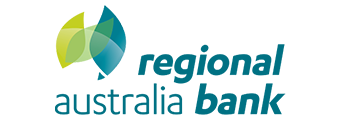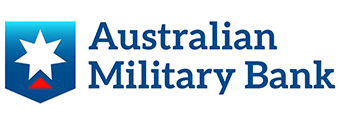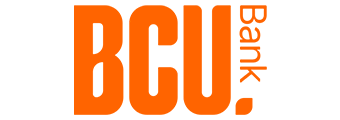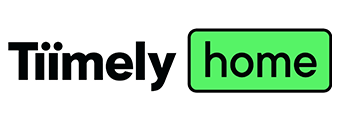| Lender | Home Loan | Interest Rate | Comparison Rate* | Monthly Repayment | Repayment type | Rate Type | Offset | Redraw | Ongoing Fees | Upfront Fees | Max LVR | Lump Sum Repayment | Extra Repayments | Split Loan Option | Tags | Features | Link | Compare | Promoted Product | Disclosure |
|---|---|---|---|---|---|---|---|---|---|---|---|---|---|---|---|---|---|---|---|---|
5.29% p.a. | 5.33% p.a. | $2,773 | Principal & Interest | Variable | $0 | $530 | 90% |
| Promoted | Disclosure | ||||||||||
5.19% p.a. | 5.10% p.a. | $2,742 | Principal & Interest | Variable | $0 | $0 | 80% |
| Disclosure | |||||||||||
5.24% p.a. | 5.29% p.a. | $2,758 | Principal & Interest | Variable | $0 | $1,100 | 80% | Disclosure | ||||||||||||
5.54% p.a. | 5.60% p.a. | $2,852 | Principal & Interest | Variable | $0 | $835 | 90% | |||||||||||||
5.79% p.a. | 6.19% p.a. | $2,931 | Principal & Interest | Variable | $395 | $350 | 90% | |||||||||||||
5.77% p.a. | 5.80% p.a. | $2,924 | Principal & Interest | Variable | $0 | $0 | 90% | |||||||||||||
5.94% p.a. | 5.94% p.a. | $2,978 | Principal & Interest | Variable | $0 | $0 | 80% | |||||||||||||
5.94% p.a. | 6.23% p.a. | $2,978 | Principal & Interest | Variable | $350 | $350 | 95% | |||||||||||||
5.99% p.a. | 6.35% p.a. | $2,995 | Principal & Interest | Variable | $0 | $0 | 95% | |||||||||||||
5.74% p.a. | 5.77% p.a. | $2,915 | Principal & Interest | Variable | $0 | $325 | 90% | |||||||||||||
6.11% p.a. | 6.32% p.a. | $3,033 | Principal & Interest | Variable | $10 | $1,450 | 80% | |||||||||||||
6.16% p.a. | 6.19% p.a. | $3,049 | Principal & Interest | Variable | $0 | $635 | 60% | |||||||||||||
5.98% p.a. | 6.33% p.a. | $2,991 | Principal & Interest | Variable | $0 | $730 | 95% | |||||||||||||
6.19% p.a. | 6.22% p.a. | $3,059 | Principal & Interest | Variable | $0 | $450 | 80% | |||||||||||||
6.28% p.a. | 6.65% p.a. | $3,088 | Principal & Interest | Variable | $390 | $400 | 90% | |||||||||||||
5.89% p.a. | 5.89% p.a. | $2,962 | Principal & Interest | Variable | $0 | $0 | 80% |
Best February Variable Rate Home Loans
Aussie borrowers have long been partial to variable home loan rates – a trend that’s unlikely to falter in the wake of RBA cash rate cuts.
Variable home loan rates allow borrowers to enjoy the benefits of rate cuts, taking the pressure off the budget of long-suffering homeowners. But not all variable rates are made equal.
Here are some of the most competitive variable rate home loans in our database right now, no matter your current loan-to-value ratio (LVR).
| LVR | Brand | Product | Interest rate (p.a.) | Comparison rate* (p.a.) |
|---|---|---|---|---|
| ≤60% | RACQ Bank | Fair Dinkum Home Loan (Principal & Interest) (LVR < 60%) | 5.14% | 5.15% |
| ≤80% | Pacific Mortgage Group | Standard Variable Home Loan OO,PI LVR 80% | 5.14% | 5.14% |
| ≤90% | Up | Up Home Variable (Principal & Interest) (LVR < 90) | 5.20% | 5.20% |
| ≤95% | Unity Bank | Essential Worker Home Loan with offset (Owner Occupied P&I) | 4.99% | 5.04% |
Rates correct as of 4 February 2026. View disclaimer
Variable home loan interest rates are particularly common among Aussies, offering increased flexibility and typically allowing access to a greater number of features.
What is a variable home loan interest rate?
At its simplest, a home loan is borrowed money, and lenders don't lend for free. The interest rate you pay helps shape how big or small your repayments are. Beyond that, the type of interest rate can also play a key role.
Variable rates can fluctuate over the weeks, months, and years a person holds their home loan. Comparatively, fixed interest rate mortgages remain the same for the duration of a fixed rate period.
While variable rate home loans may be trickier to budget for, as rate rises or falls can impact the size of your repayments, they also typically offer many benefits their fixed counterparts do not.
How to compare variable mortgage interest rates
Comparing variable rate home loans on Your Mortgage is as easy as browsing our comparison tables. Feel free to consider our entire database or filter it to suit your unique needs.
For the most part, a borrower would be best to find the lowest rate home loan that they're eligible for. However, there are other factors you might want to consider when looking for a great deal:
Interest rate
A home loan's interest rate is the key factor influencing how much a mortgage will cost. It's important that home loan hunters understand what a low, average, and high interest rate is at the time they're shopping. After all, even shaving half a percentage point from a mortgage's rate can equal thousands of dollars of annual savings.
Comparison rate
A home loan's comparison rate reflects its 'true cost' by considering the overall cost of a $150,000 home loan over a 25-year span. Think of it as the fine print brought to life. While it is easy to point out which home loans have the lowest variable rate, it is still crucial to take note of the comparison rate - after all, what's the point of a low rate if you're getting slugged by fees?
Features
Another aspect worth contemplating is whether you'd like access to any special features. If you have a hoard of spare cash or you're a good saver, you might benefit from an offset account. Or, if you're considering installing solar panels, it might be worth looking for a home loan offering discounted rates for environmentally friendly homes.
Fees
Paying close attention to a mortgage's comparison rate will give you a good overview of the costs that might be charged, but it's still worth digging to find if you might be charged extra fees. Some home loan providers might charge fees to use an offset account or access a loyalty program, for instance - these 'optional' costs might not be reflected in the comparison rate.
Why choose a variable rate home loan?
Variable rate home loans tend to be more popular than fixed rate home loans in Australia, potentially because they offer more flexibility.
Variable rate home loans tend to offer features such as redraw facilities, offset accounts, and the ability to make extra repayments as standard. Fixed rate home loans, on the other hand, may not allow for such benefits.
When to go for a variable rate home loan
Variable rate home loans may also be more appealing during times of high interest rates. When rates are high, it's generally expected that they will fall. A person fixing their interest rate during a cyclical high won't benefit if or when rates fall, while a variable rate borrower would likely see their repayments shrink.
Features of variable rate home loans
Variable rate home loans are generally more flexible than fixed rate options. Features that are routinely found on variable rate home loans, that aren't so common on fixed rate home loans, include:
- Ability to make unlimited extra repayments
- The option to set up an offset account
- The ability to freely redraw extra repayments made previously
- The ability to refinance with relative ease
A variable rate mortgage holder also won't face break fees if they refinance their mortgage, repay the entire loan, or sell their property. Break fees can be costly, sometimes equating to tens of thousands of dollars, so a homeowner unsure about their next move would be wise to consider them.
Pros and cons of variable rate home loans
Certainty or flexibility? That's the trade-off at the heart of the choice.
Pros of variable rate home loans
-
Greater flexibility
Want to refinance your home loan or sell your property? If you have a variable rate home loan, you can do either with minimal potential penalties. -
Extra repayments
Variable rate home loan holders can make as many extra repayments as they'd like, and they can generally redraw them easily if they need the funds for another purpose. -
Features like offset accounts
Certain features such as offset accounts are far more common on variable rate mortgages than on fixed rate offerings. -
Rate cut benefits
Variable interest rates generally move in line with the RBA cash rate. If the cash rate falls, it's likely that variable interest rates will too.
Cons of variable rate home loans
-
Greater uncertainty
Variable rates can rise and fall over time. That's unlike fixed rates, that offer a borrower certainty about their home loan repayments for the duration of a fixed rate period. -
Risk of rate rises
While it's true that variable rate borrowers can benefit from cash rate cuts, they can also be subject to higher repayments if the cash rate were to rise or their lender chooses to hike variable rates.
How can I manage the uncertainty of a variable home loan?
Selecting a variable rate mortgage over a fixed rate option means taking on some additional uncertainty. But there are ways to mitigate the associated risks.
Variable rate home loan holders concerned about potential rate movements may be wise to build up a financial buffer they can lean on if their repayments do rise. They might also make extra repayments on their mortgage and ensure they're living within their means, allowing for extra wiggle room in their lifestyle.
Split home loans: A worthwhile middle ground?
However, if they're set on a variable rate mortgage but feel uneasy about uncertainty, they might consider a split rate home loan. Many mortgage providers offer a split rate option, allowing borrowers to lock in a fixed rate on a portion of their loan while realising a variable rate on the remainder.
Frequently Asked Questions
Here are the answers to some of the most frequently asked questions on variable rate home loan rates.
If you have a variable rate home loan and wish to change it to a fixed rate home loan, there's very little stopping you. Simply approach your lender or consider refinancing.
Swapping from a fixed rate to a variable rate is generally a bit trickier. While possible, one must weigh the pros and cons carefully.
Variable mortgage rates are subject to change at any given time. Though, lenders must give a borrower notice before increasing their rate and most lenders commit to telling a borrower at least 20 days in advance.
Typically, variable interest rates shift in line with the Reserve Bank of Australia (RBA) cash rate. So, if the cash rate is being hiked or cut regularly, variable home loan rates will likely be doing the same.
Yes. The ability to pay off a home loan early is one of the advantages to having a variable interest rate.
How advertised variable interest rates compare to advertised fixed interest rates at any given time tends to depend on the official cash rate and whether lenders expect it to rise or fall in the near-term future. If a lender anticipates the cash rate will rise in the coming months or years, it will generally price its fixed rate lineup higher than its variable rate line up. If if thinks the opposite, it will probably price its fixed rate offers lower than its variable rate offers.
Whether the best interest rate option for you is fixed or variable will depend entirely on your own circumstances and risk tolerance.
If you couldn’t manage your repayments if your interest rate were to go up or you expect rates to rise, a fixed rate may be your best option. On the other hand, if you intend to refinance in the near future, plan to make extra repayments, want access to additional mortgage features, or believe interest rates will fall, a variable rate could be your best option.
The key risk is uncertainty. With a variable rate, repayments can change at any time in response to the RBA cash rate or a lender’s own funding costs. This can make budgeting harder, particularly if you’re already stretching your finances.
The RBA cash rate is the benchmark rate at which banks borrow and lend short-term funds between each other. Lenders set their own variable rates higher than this to cover their funding costs, operational expenses, and profit margins. Other factors – like wholesale funding markets, risk appetite, and competition – also influence how much higher a lender’s rate is set. That’s why you’ll see differences between banks, non-banks, and credit unions, even though the RBA cash rate is the same for everyone.
It’s wise to review your variable rate at least once or twice a year, especially after RBA announcements. Lenders don’t always pass on cuts in full, and sometimes they move outside of the RBA cycle. The so-called ‘loyalty tax’ refers to the higher rates long-term customers often end up paying compared to new borrowers. Banks frequently offer sharper rates to attract new business but don’t always extend the same discounts to existing customers. Regularly checking your rate – and negotiating or refinancing if needed – can help you avoid paying more than you should.
Latest Home Loan Lenders' Interest Rates
Looking for a specific Home Loan Provider? Explore the brands we compare to see a list of their products, rates and features.

Get help finding
the right home loan
Not sure which type of loan is best for your needs?
Your Mortgage can help you find out.







































